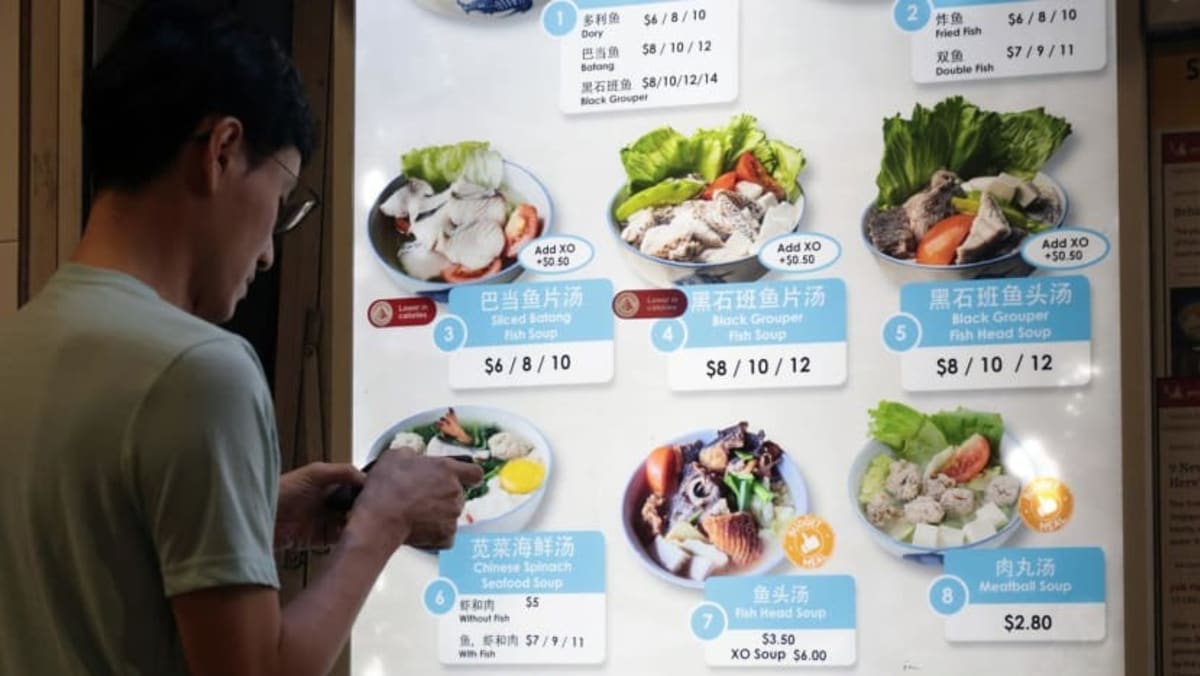Singapore currently has 120 hawker centres and 776 coffee shops.
The Hawker Centres Group of the National Environment Agency (NEA) oversees the 120 hawker centres and neighbouring markets, regulating their tenancies and public health aspects.
The 120 hawker centres house a total of 6,000 cooked food stalls, and they had an average occupancy rate of 97 per cent in 2023, said a NEA spokesman in response to TODAY’s queries.
Some 30 per cent of these stallholders pay subsidised rent ranging from S$192 to S$384 a month, the spokesman added.
Among these 120 hawker centres, 107 are directly managed by NEA and various town councils.
Vacant stalls in these hawker centres are made available via monthly stall tender exercises.
There is no minimum bid price, and a stall will be awarded to the highest qualifying bid, said NEA.
Some tenderers have successfully secured stalls for as low as S$1, said the NEA spokesman.
Successful bid prices for stalls awarded are published online as reference to guide future tenderers in placing bids.
Successful tenderers will have their stall rentals kept unchanged – at the tender bid price – for the first three years of their tenancy period.
Thereafter, the stall’s rental is adjusted to the market rate as determined by an independent professional valuation. NEA said that the valuation considers factors such as the footfall of the hawker centre, stall size, and market conditions.
In March, Dr Koh Poh Koon, Senior Minister of State for Sustainability and the Environment, said that the median rental across non-subsidised cooked food stalls at hawker centres has remained constant at about S$1,250 since 2015.
Outside of the 107 NEA-managed hawker centres, the other 13 hawker centres are social enterprise hawker centres (SEHCs) managed by NEA-appointed operators. These operators include Fairprice Group Hawker Centre, Fei Siong Social Enterprise, Timbre+ Hawkers, JW 50 Hawker Heritage, and Canopy Hawkers Group.
The SEHC model arose from a recommendation put forward by the Hawker Centres Public Consultation Panel in 2012.
The panel was set up to provide ideas on the new hawker centres that the government announced it would be building after a hiatus of nearly three decades.
Defining a social enterprise as “a regular business that maximises profits to deliver social impact”, the panel suggested that the management models of the new hawker centres should ensure the community “derives maximum benefit”, give employment opportunities to lower-income and less privileged individuals, and help those who aspire to be in the food industry.
To ensure that stall rentals at the SEHCs are kept reasonable and affordable, NEA takes into consideration the proposed rental, operating costs, and ancillary costs to be paid by stallholders – such as table cleaning fees and central dishwashing charges – when assessing bids, Minister for Sustainability and the Environment Grace Fu said in January this year.
The operator is not allowed to charge stallholders rent that differs from the one stated in the tender bid, or subject the stall rentals to bidding.
Ms Fu noted that the median stall rental at SEHCs is comparable to that at similar hawker centres operated by NEA, taking into account stall sizes and amenities.
The current network of SEHCs form 13 of the 20 new hawker centres which the authorities said it would build in Singapore by 2027.
The 20 new hawker centres will add more than 800 cooked food stalls and help to further moderate rentals.
The 13th and latest addition to the market, Anchorvale Village Hawker Centre at Sengkang, opened in June.
Separately, of the 776 coffee shops in Singapore, 374 are owned by the Housing and Development Board (HDB) and rented out to operators.
The remaining 402 were sold and are hence privately owned.
Since 1998, HDB no longer sells coffee shops and only rents them out.
Some prominent coffee shop operators here include Kimly Group, which operates and manages a network of 85 outlets and drinks stalls.
Other big players include Chang Cheng Mee Wah, which runs more than 30 coffee shop outlets islandwide, and Kim San Leng, which operates 18 coffee shops.
Some of these players also operate some stalls in their coffee shops while renting out other stalls.
Since 2018, new HDB coffee shops have been let out via price-quality method tenders.
Under this model, HDB would consider not only the tender price, but also the quality of the proposal when awarding its tenders.
It added that the tenders are reviewed holistically based on a range of criteria beyond rent alone, such as affordability considerations.

